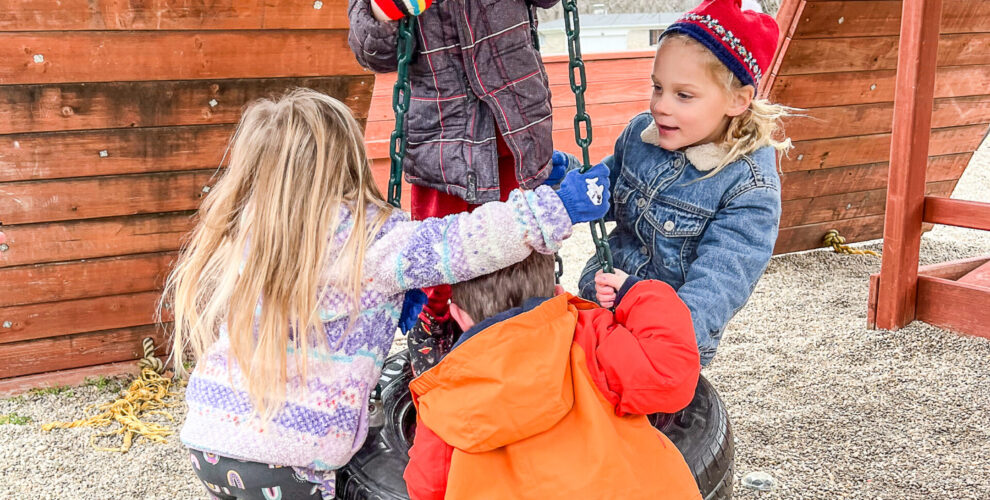Written on Indiana Council of Preschool Cooperatives (ICPC) Website
Check out this great Editorial from the Los Angeles Times
Adults are scared that preschoolers will get hurt ‘just running around,’ and that time on the playground would be better spent in
academic preparation. But studies show that purposeless play develops creativity and social abilities — not to mention healthy bodies
and an active style of living.
January 09, 2012
When it comes to fostering the well-being of preschoolers, one thing society should fear is fear itself.
Lively image to the contrary, 3- to 5-year-olds spend most of their time in preschool sitting down. As for running, jumping, climbing,
sliding, riding a tricycle — 2% of the time. This is of special concern when you consider that three-fourths of this age group attend
preschool in this country.
A study published last week in the journal Pediatrics reveals a scary reason why preschools have become centers of inactivity: Adults,
including parents, preschool staff and bureaucrats, are scared. They worry that children will sustain cuts and scrapes (or worse) if they
play hard, and fret that if the tykes spend time “just running around,” as one preschool employee dismissively expressed it, rather than
burying their noses in reading-preparation exercises, they won’t be ready for kindergarten.
It’s enough to make a grown-up cry. If the inherent value of letting children be children isn’t enough, child development findings should
be. Ten years ago, a spate of studies affirmed the importance of unstructured play for children. Good old purposeless play — in which
children hang out in an empty cardboard carton, doing the sort of imagining that is beyond most adults’ imagination, or skip and chase
and climb — develops creativity and problem-solving abilities along with cognitive and social abilities, not to mention gross motor skills,
healthy physical development and an active style of living.
Preschools also feel pressured by their respective states to prepare their young charges academically, researchers reported, and new
regulations that make playground equipment safer have made it so boring that even the toddler set rejects it. Parents too, of all
socioeconomic backgrounds, push preschools toward academics, according to the study. They express concern only about what their
children learn, not how happily they play. And they appear to have become a more squeamish group, with some demanding that their
children be sidelined during outdoor play rather than chance suffering a bruise.
There’s reason for fear — not of skinned knees but rather the loss of fun physical exercise that prepares children for active, healthy lives.
It is worth being afraid that if they don’t engage in plenty of climbing and skipping and, yes, taking reasonable risks, they will miss
important developmental steps and considerable joy. Childhood itself is in danger.



